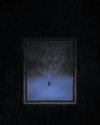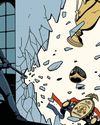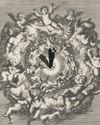
In the summer of 1958, Morton Smith, a newly hired Columbia University historian, traveled to an ancient monastery outside Jerusalem. In its library, he found what he said was a lost gospel. His announcement made international headlines. Scholars of the Bible would spend years debating the discovery's significance for the history of Christianity. But in 1975, one of Smith's colleagues went public with an extraordinary suggestion: The gospel was a fake. Its forger, the colleague believed, was Smith himself.
The manuscript, in handwritten Greek, ran two and a half pages, but one passage drew outsize attention. It depicted Jesus spending the night with a young man he'd raised from the dead. "The youth, looking upon [Jesus], loved him and began to beseech him that he might be with him," it read. "And after six days Jesus told him what to do and in the evening the youth comes to him, wearing a linen cloth over his naked body. And he remained with him that night, for Jesus taught him the mystery of the kingdom of God." To devout Christians, the homoerotic subtext was obvious blasphemy. But Smith argued the opposite: His discovery, he believed, was part of an unknown, longer version of the Gospel of Mark, containing lost stories from about 50 C.E., making them the oldest known account of Jesus's life and, in Smith's view, the truest.
Smith theorized that "Secret Mark," as the text came to be called, portrayed a private baptism that Jesus reserved for his closest disciples: One by one and at night, he contended, Jesus hypnotized male followers into believing they'd risen to heaven and been freed from the laws of Moses.
Denne historien er fra April 2024-utgaven av The Atlantic.
Start din 7-dagers gratis prøveperiode på Magzter GOLD for å få tilgang til tusenvis av utvalgte premiumhistorier og 9000+ magasiner og aviser.
Allerede abonnent ? Logg på
Denne historien er fra April 2024-utgaven av The Atlantic.
Start din 7-dagers gratis prøveperiode på Magzter GOLD for å få tilgang til tusenvis av utvalgte premiumhistorier og 9000+ magasiner og aviser.
Allerede abonnent? Logg på

Apocalypse, Constantly
Humans love to imagine their own demise.

A Palestinian American Sex and the City
Betty Shamieh's debut novel is a rebellious rom-com.

Modi's Failure
Why India is losing faith in its strongman leader

The Anti-Social Century
Americans are now spending more time alone than ever. It's changing our personalities, our politics, and even our relationship to reality.

The Wild Charity of Saint Francis
The guide we need, now that kindness is countercultural

Where Han Kang's Nightmares Come From
In her novels, the South Korean Nobel laureate returns again and again to her countrys bloody past.

TROPHY HUNTERS
A GROUP OF CHILDHOOD FRIENDS PULLED OFF A STRING OF THE MOST AUDACIOUS SPORTS-MEMORABILIA HEISTS IN AMERICAN HISTORY. THEN THEY DID SOMETHING REALLY CRAZY.

THE NEW RASPUTINS
Anti-science mysticism is enabling autocracy around the globe.

ARMY OF GOD
AMERICAN CHRISTIANS ARE EMBRACING A CHARISMATIC MOVEMENT KNOWN AS THE NEW APOSTOLIC REFORMATION, WHICH SEEKS TO DESTROY THE SECULAR STATE. Now THEIR WAR BEGINS.

WHAT NOT TO WEAR
The false promise of seasonal-color analysis